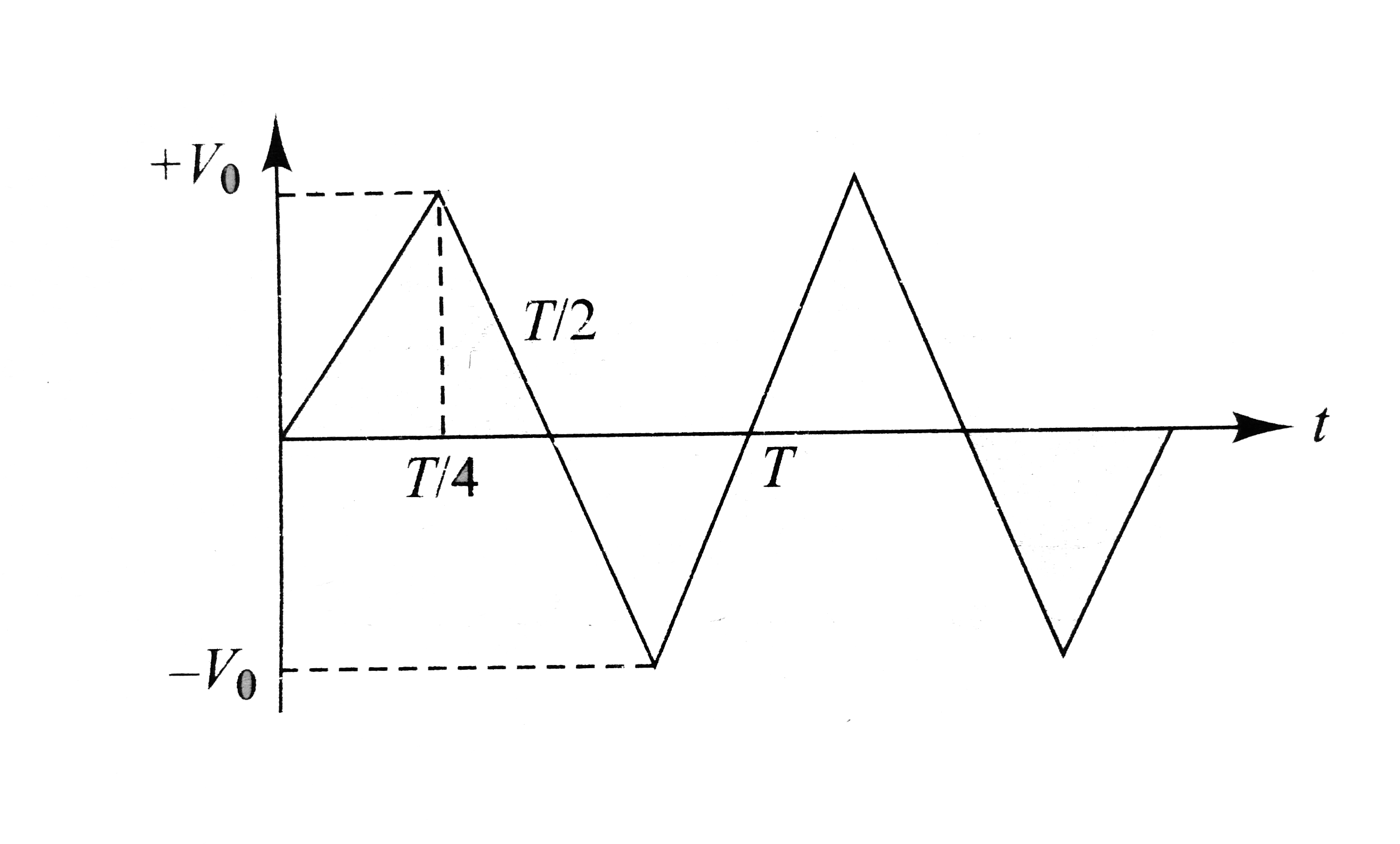An AC source is rated 220V,50Hz. The average voltage is calculated in a time interval of 0.01s. It
must be zero
may be zero
is never zero
is (220√2)V
The correct Answer is:B
To solve the problem step by step, we need to find the average voltage of an AC source over a specified time interval. Here’s how we can approach it:
Step 1: Understand the AC Source Ratings
The AC source is rated at 220 V and 50 Hz. The voltage provided is the RMS (Root Mean Square) voltage, which is commonly used in AC circuits.
Step 2: Calculate the Time Period of the AC Source
The frequency (f) of the AC source is given as 50 Hz. The time period (T) can be calculated using the formula:
T=1f
Substituting the given frequency:
T=150=0.02 seconds
Step 3: Analyze the Given Time Interval
We need to calculate the average voltage over a time interval of 0.01 seconds.
Step 4: Determine the Relationship Between Time Interval and Time Period
The time interval of 0.01 seconds is half of the time period (0.02 seconds). Since the average voltage over a complete cycle (one time period) is zero, we need to check if the given time interval is an integral multiple of the time period.
Step 5: Conclusion About the Average Voltage
The average voltage over a complete cycle (0.02 seconds) is zero. Since 0.01 seconds is not a complete cycle but rather half of it, the average voltage over this interval will not be zero.
Thus, we conclude that the average voltage calculated over the time interval of 0.01 seconds is never zero.
Final Answer
The average voltage calculated in the time interval of 0.01 seconds is never 0.
---
The AC source is rated at 220 V and 50 Hz. The voltage provided is the RMS (Root Mean Square) voltage, which is commonly used in AC circuits.
The frequency (f) of the AC source is given as 50 Hz. The time period (T) can be calculated using the formula:
T=1f
Substituting the given frequency:
T=150=0.02 seconds
We need to calculate the average voltage over a time interval of 0.01 seconds.
The time interval of 0.01 seconds is half of the time period (0.02 seconds). Since the average voltage over a complete cycle (one time period) is zero, we need to check if the given time interval is an integral multiple of the time period.
The average voltage over a complete cycle (0.02 seconds) is zero. Since 0.01 seconds is not a complete cycle but rather half of it, the average voltage over this interval will not be zero.
The average voltage calculated in the time interval of 0.01 seconds is never 0.
Topper's Solved these Questions
- ALTERNATING CURRENTBOOK - HC VERMA ENGLISHCHAPTER - ALTERNATING CURRENTEXERCISE - Objective 2
7 Videos
- ALTERNATING CURRENTBOOK - HC VERMA ENGLISHCHAPTER - ALTERNATING CURRENTEXERCISE - Exercise
19 Videos
- ALTERNATING CURRENTBOOK - HC VERMA ENGLISHCHAPTER - ALTERNATING CURRENTEXERCISE - Workder Examples
8 Videos
- BOHR'S MODEL AND PHYSICS OF THE ATOMBOOK - HC VERMA ENGLISHCHAPTER - BOHR'S MODEL AND PHYSICS OF THE ATOMEXERCISE - Short Answer
10 Videos
Similar Questions
Knowledge Check
An ac source is of 200√2 V, 50 Hz. The value of voltage after 1600s from the start is
A200 VB200√5C100 VD50 VAn ac source is of 200√2 V, 50 Hz. The value of voltage after 1600s from the start is
A200 VB200√2VC100 VD50 V
An AC source is 120 V-60 Hz. The value of voltage after 1/720 s from start will be
View SolutionThe average value of voltage (V) in one time period will be

View SolutionAn AC voltage is given by E=E0sin(2πt)T. Then the mean value of voltage calculated over time interval of T/2 seconds
View SolutionThe peak voltage in a 220VAC source is
View SolutionThe peak voltage in a 220VAC source is
View SolutionThe frequency of the wave propagating on a string is 20Hz. What will be the difference in phase of a particle of the string in a time interval of 0.01 s ?
View Solution